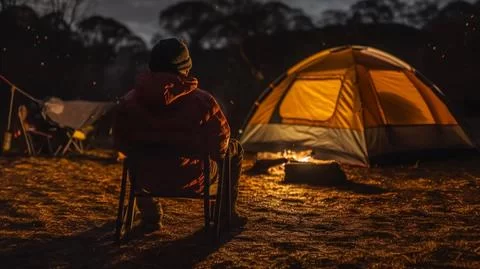Learn how to stay safe while camping alone with our essential tips and strategies. Discover expert advice, real-life experiences, and practical recommendations for a secure solo camping adventure.

How to Stay Safe While Camping Alone: Essential Tips for Solo Outdoor Adventures
- 1. Planning and Preparation
- 2. Choosing the Right Campsite
- 3. Packing for Safety
- 4. Staying Aware and Alert
- 5. Knowing When to Seek Help
1. Planning and Preparation
When you decide to go camping alone, the first thing you should do is plan thoroughly. This means researching the location, understanding the weather conditions, and checking for any local wildlife or potential hazards. Before setting out, inform a friend or family member about your exact plans, including where you'll be, when you'll be back, and emergency contacts. Use an itinerary that includes your camping destination, any planned routes, and check-in points. Preparation will ensure that you’re not just ready, but also safe.
2. Choosing the Right Campsite
Picking the right campsite can significantly affect your safety while camping alone. Look for established campgrounds or spots known for being safe and accessible. Avoid isolated locations that could be difficult to reach in case of an emergency. Consider proximity to trails, water sources, and visibility from other campers. Your campsite should offer natural protection from the elements, such as dense trees for windbreaks, and should be away from wildlife-heavy areas. Ideally, it should be a place where you can easily see anyone approaching.
3. Packing for Safety
When camping solo, your safety kit is just as important as your tent or sleeping bag. Pack a first-aid kit with supplies for common injuries like cuts, burns, or sprains. Don't forget a multi-tool, a whistle, a flashlight with extra batteries, and a map or GPS device. A fire starter is also essential for emergency warmth or signaling. Additionally, keep a personal defense item like pepper spray or a knife on hand. If you’re venturing into remote areas, a satellite phone or emergency beacon is also highly recommended.
4. Staying Aware and Alert
One of the most critical aspects of camping safely alone is staying vigilant. Always be aware of your surroundings, including animal tracks, unusual sounds, or people nearby. Keep your camp area well-organized to avoid tripping hazards and ensure that your gear is within easy reach. Practice situational awareness throughout your trip by checking in periodically with your phone (if service is available) or with fellow campers. Trust your instincts—if something feels off, don’t hesitate to change your plans or move your campsite.
5. Knowing When to Seek Help
Knowing when to ask for help can be a lifesaver when camping solo. If you’re feeling unwell, injured, or if the weather turns dangerous, don’t hesitate to seek assistance. Be mindful of how you feel mentally—solo camping can be isolating, and it’s important to recognize if you’re feeling overwhelmed or anxious. In an emergency, use your whistle, signal fire, or contact emergency services through your satellite phone or beacon. Don’t take unnecessary risks; your safety should always come first.
Solo camping offers a unique, empowering experience in nature, but it also requires careful preparation and awareness to stay safe. Want to learn more about the best camping destinations or book a safe and unforgettable camping adventure? Visit Pine Cliff Resort to discover amazing outdoor experiences that cater to your safety and comfort!
Yogi Bear's Jellystone Park Camp-Resort: Tyler, TX
5583 FM Rd 16, Tyler, TX 75706, USA
Visit Location PageRush Valley Campsite
Utah, USA
Visit Location Page